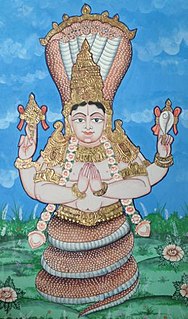A Quote by Sri Aurobindo
There is the physical mind which is mechanical but the awareness which is the essential character (dharma) of the mind is also to some extent present there.
Related Quotes
Remember the word bodhichitta, because Atisha says the whole effort of religion, the whole science of religion, is nothing but an endeavor to create bodhichitta, buddha-consciousness: a mind which functions as a no-mind, a mind which dreams no more, thinks no more, a mind which is just awareness, pure awareness.
Many people see themselves as a problem that needs to be solved. They also habitually see the present moment as an obstacle that they need to overcome or get away from. With awareness, an inner sense of spaciousness arises that enables you to look at your own mind, which is to say the human mind, with a certain degree of detachment.
Awareness, beholding the mind, is the most essential method to have a breakthrough. And once you have gone just a step beyond the mind, you have entered the world of nirvana, you have entered the world of light and eternal life. You have attained to spiritual integrity, freedom, and tremendous ecstasy which the mind cannot even dream about.
My concern today is with the painting of manners of the present. The past is interesting not only by reason of the beauty which could be distilled from it by those artists for whom it was the present, but also precisely because it is the past, for its historical value. It is the same with the present. The pleasure which we derive from the representation of the present is due not only to the beauty with which it can be invested, but also to its essential quality of being present
These tenses-past, present and future-are not the tenses of time; they are tenses of the mind. That which is no longer before the mind becomes the past. That which is before the mind is the present. And that which is going to be before the mind is the future. Past is that which is no longer before you. Future is that which is not yet before you. And present is that which is before you and is slipping out of your sight. Soon it will be past.
With self-awareness you grow more intelligent. In awareness you learn, in self-awareness you learn about yourself. Of course, you can only learn what you are not. To know what you are, you must go beyond the mind. Awareness is the point at which the mind reaches out beyond itself into reality. In awareness you seek not what pleases, but what is true.
The doctrine called Philosophical Necessity is simply this: that, given the motives which are present to an individual's mind, and given likewise the character and disposition of the individual, the manner in which he will act might be unerringly inferred: that if we knew the person thoroughly, and knew all the inducements which are acting upon him, we could foretell his conduct with as much certainty as we can predict any physical event.
One of the names of Buddha is TATHAGATA - one who lives in suchness, one who has become free from all the distractions of the mind. And the miracle is that the mind consists only of distraction, so once you are free of all distractions there is no mind left. In the present there is no mind. In the present there is only consciousness, awareness, watchfulness.
Whether this vast homogeneous expanse of isotropic matter is fitted not only to be a medium of physical interaction between distant bodies, and to fulfil other physical functions of which perhaps we have as yet no conception, but also to constitute the material organism of beings exercising functions of life and mind as high or higher than ours are at present is a question far transcending the limits of physical speculation.
We are deceived if we think that mind and judgment are two different matters: judgment is but the extent of the light of the mind. This light penetrates to the bottom of matters; it remarks all that can be remarked, and perceives what appears imperceptible. Therefore we must agree that it is the extent of the light in the mind that produces all the effects which we attribute to judgment.






































